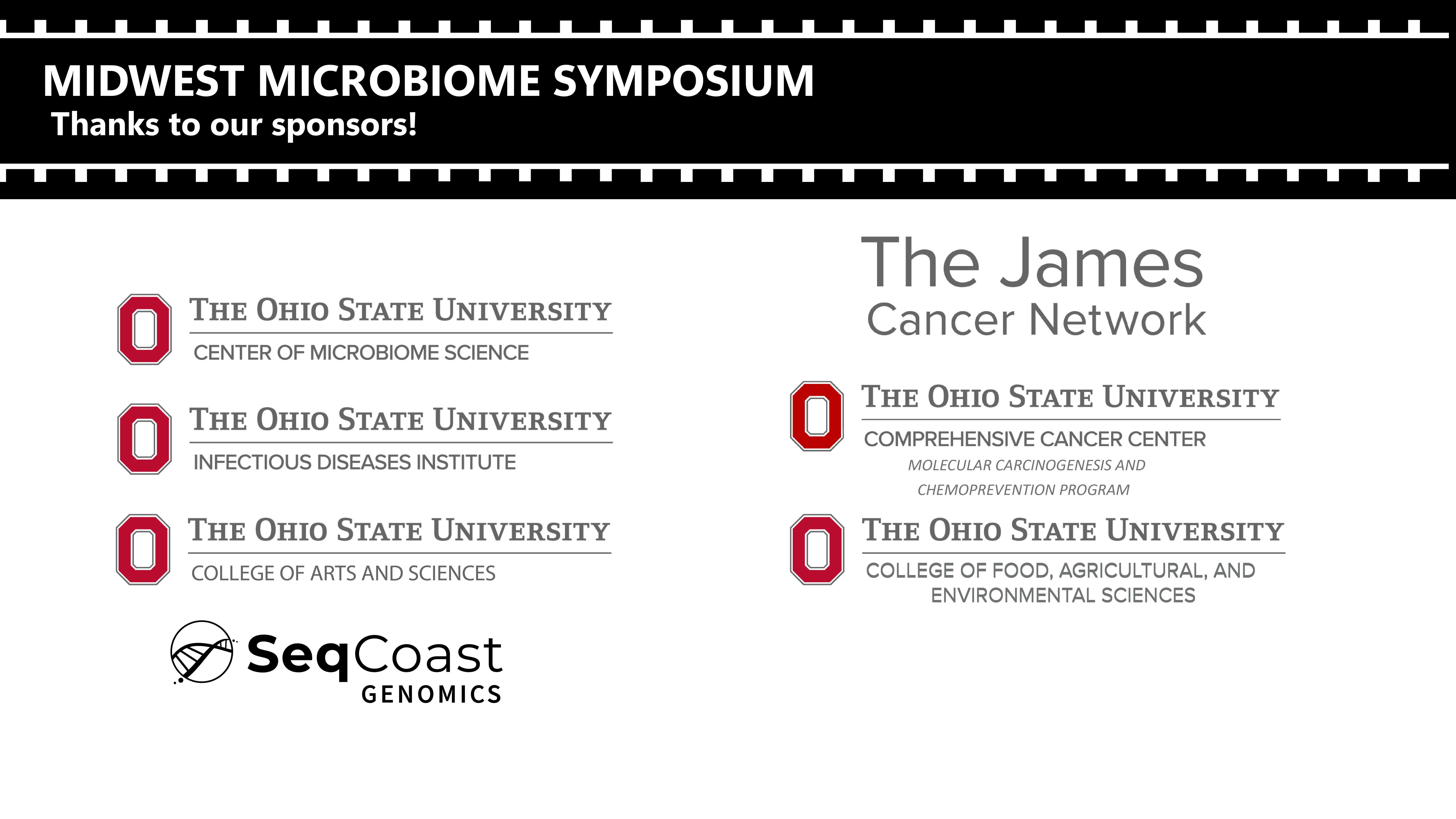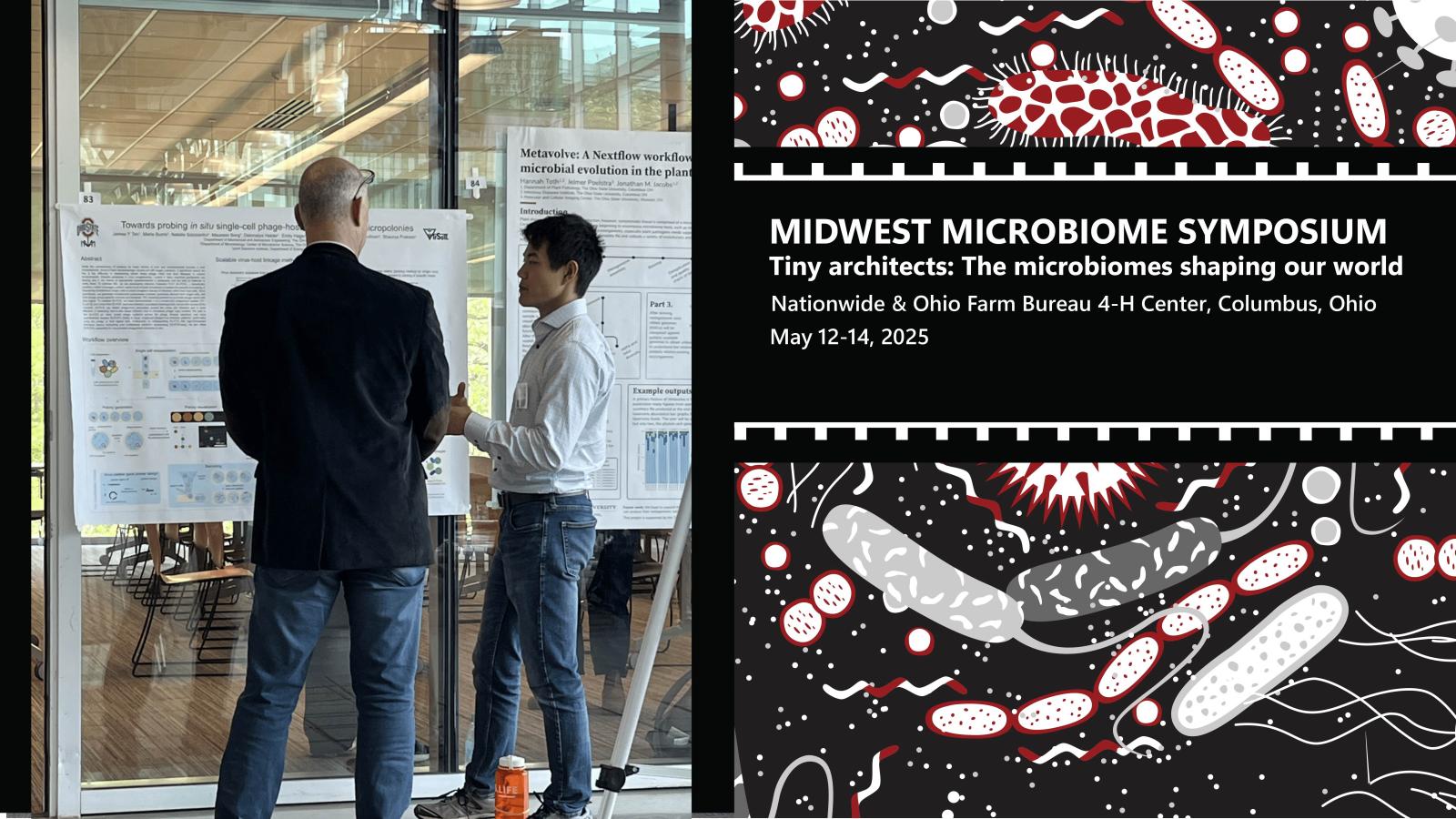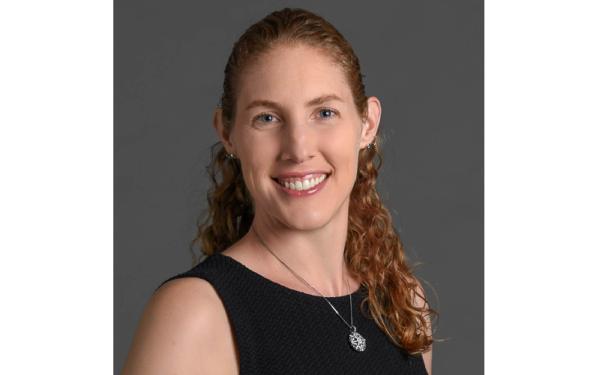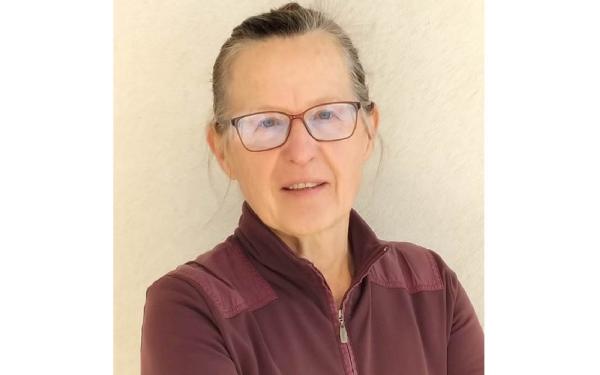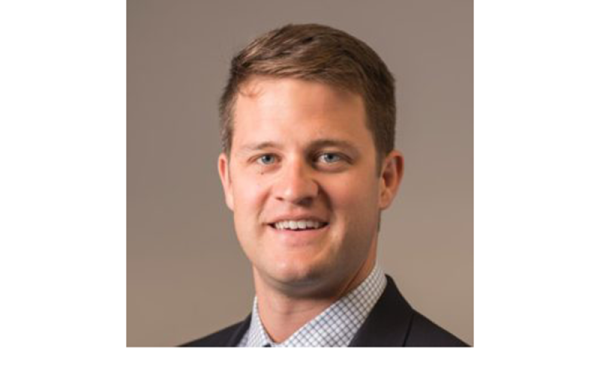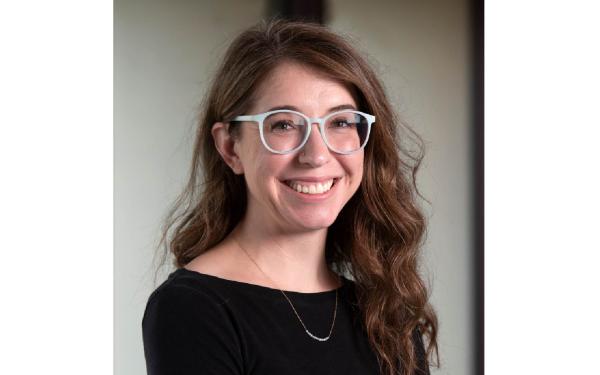Midwest Microbiome Symposium 2025 at The Ohio State University
The third annual Midwest Microbiome Symposium held this May at Ohio State University, brought together a growing community of researchers to share and discuss the latest advancements in microbiome science. The event featured a diverse range of talks, poster presentations, and engaging discussions (see program for details), highlighting the collaborative spirit and breadth of innovation within the field.
Congratulations to the inaugural Microbiome Science Award Winners!
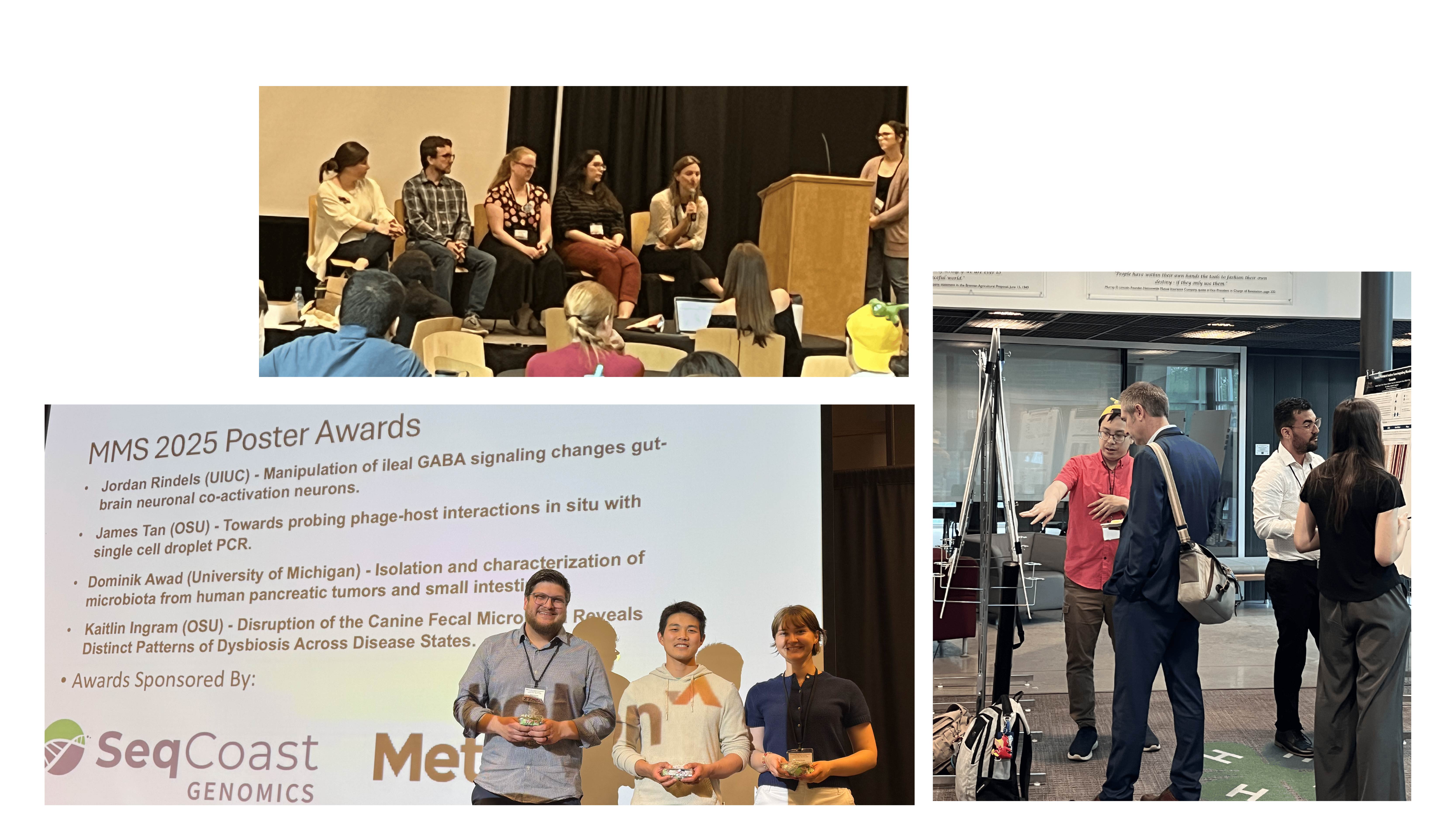
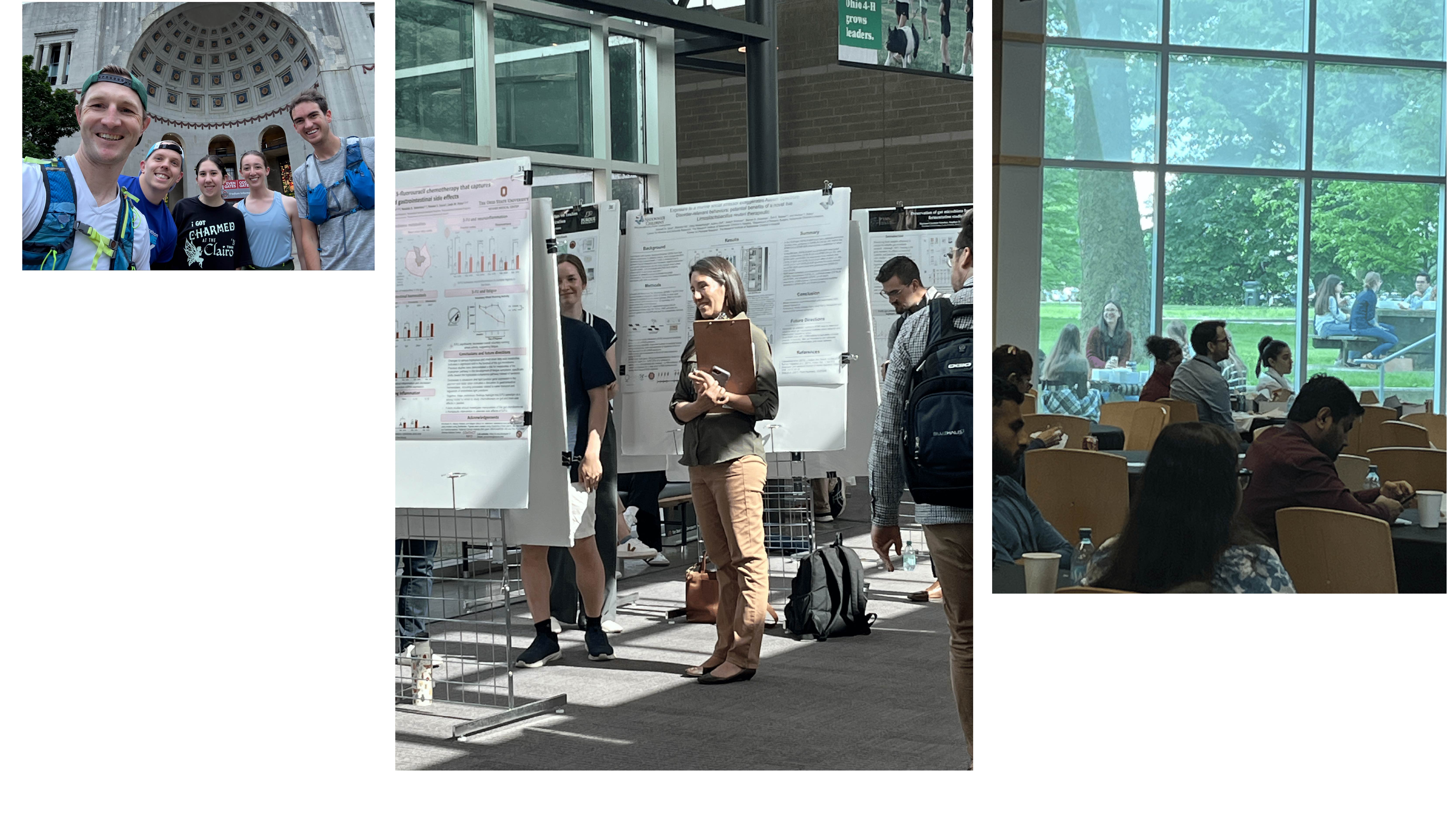
Midwest Microbiome Symposium 2025 Poster Award Winners
- Jordan Rindels (University of Illinois Urbana-Champaign) - Manipulation of ileal GABA signaling changes gut-brain neuronal co-activation neurons.
- James Tan (Ohio State University) - Towards probing phage-host interactions in situ with single cell droplet PCR.
- Dominik Awad (University of Michigan) - Isolation and characterization of microbiota from human pancreatic tumors and small intestine.
- Kaitlin Ingram (Ohio State University) - Disruption of the Canine Fecal Microbiota Reveals Distinct Patterns of Dysbiosis Across Disease States.
Mark your calendars: the next Midwest Microbiome Symposium is scheduled for May 11-13, 2026, at the University of Illinois Urbana-Champaign. We anticipate another enriching gathering and look forward to welcoming the broader microbiome research community there.
